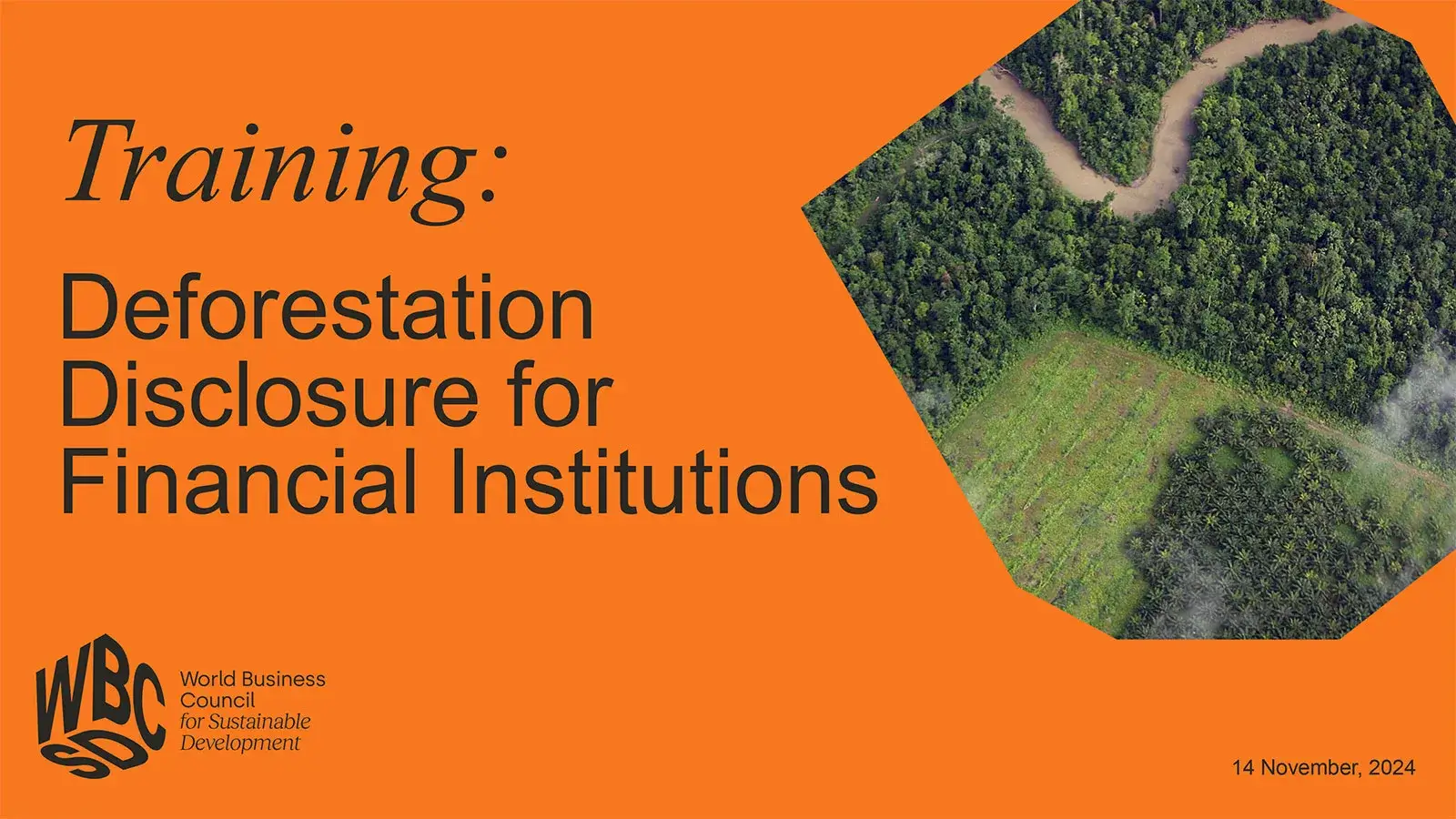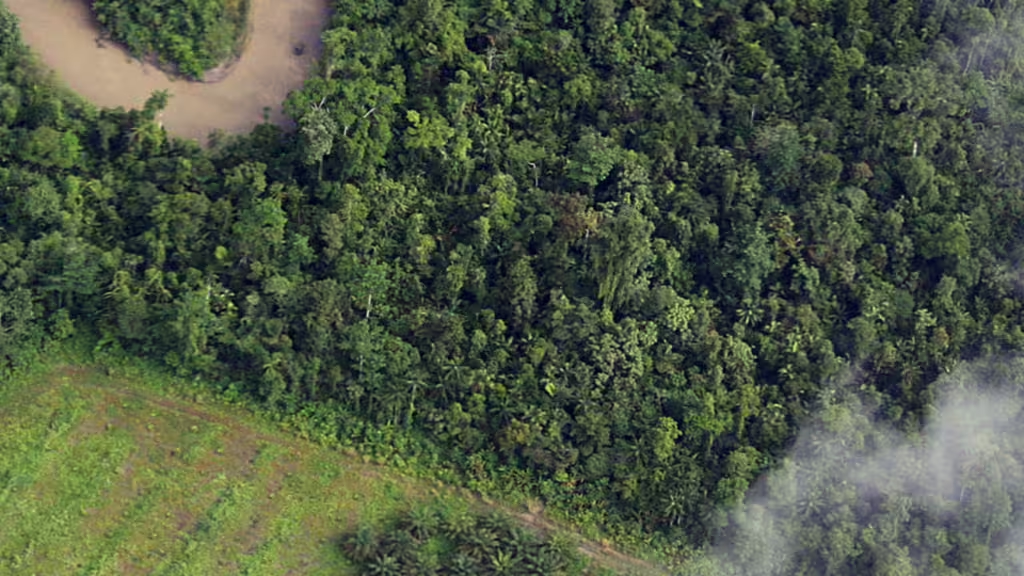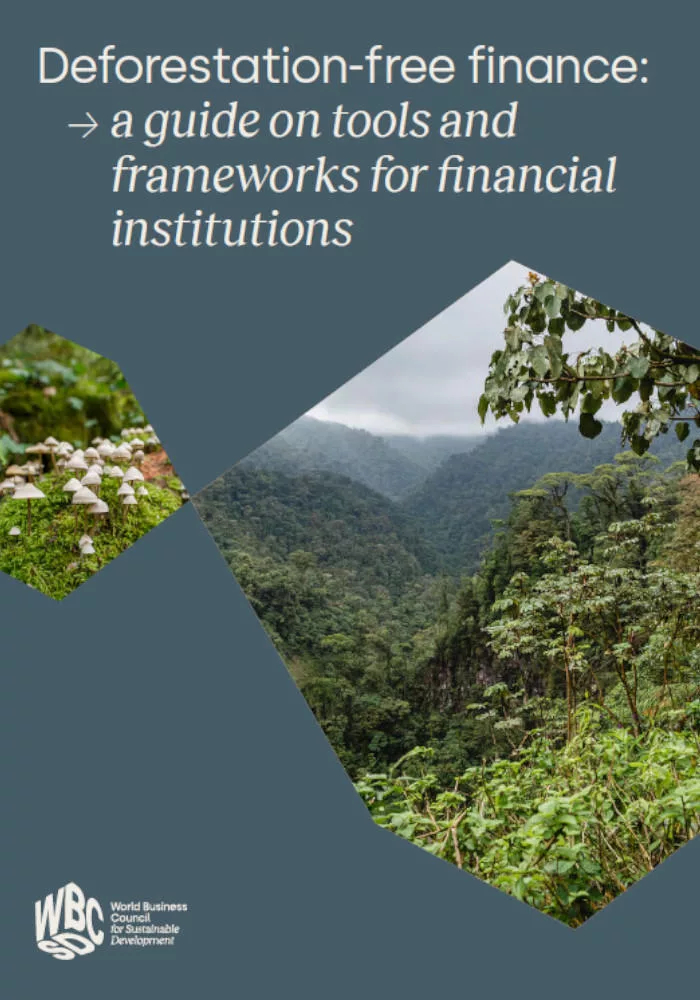
Published
14 November, 2024Type
PublicationOn 14 November 2024, the Forest Finance Risk Consortium (FFRC) hosted a webinar to present key insights and recommendations from the newly launched Deforestation Disclosure Guide for Financial Institutions. This training is designed to complement the Guide, providing an opportunity for financial institutions to hear from experts, standard setters and finance sector peers on how to disclose climate and nature risks related to deforestation and land use change, according to the different relevant frameworks, standards and regulations.
The training opened with remarks from Paula Peirão, Regional Coordinator, UNEP-FI, who emphasized the materiality of deforestation risks using Brazil as a case study. To compliment the findings of the Guide, speakers shared insights and practical experience following the Guide’s four-step approach to achieving robust deforestation disclosure:
Step 1) Adopting deforestation-free finance guidance and joining collaborative finance sector initiatives
Pei Chi Wong, Finance Sector Guidance Lead, Global Canopy, introduced the Deforestation-Free Finance Roadmap guidance, as well as collaborative initiatives such as the Finance Sector Deforestation Action (FSDA) and how these resources can help financial institutions.
Step 2) Disclosing annually through deforestation-specific disclosure
Pei Chi Wong illustrated how the Deforestation-free Finance Roadmap suggests disclosing on deforestation, highlighting relevant qualitative and quantitative information that financial institutions should disclose.
Alternatively, Kumar Bhattacharyya, Technical Manager Forests and Land, CDP, demonstrated how to disclose through the CDP disclosure platform using CDP’s questionnaire.
Step 3) Integrating deforestation into climate-and nature-related financial disclosures
James Hulse, Founder, Hindsight Consultancy, explained how financial institutions can integrate deforestation and land use change risk and impact management into IFRS S2 and TNFD disclosure frameworks to meet both mandatory and voluntary reporting requirements.
Step 4) Working towards holistic disclosure.
Marie Henniges, Director Nature in Net-zero Transition Planning, GFANZ, discussed integrating nature considerations into net-zero transition plans, previewing forthcoming GFANZ guidance.
Lastly, Vemund Olsen, Senior Analyst Sustainable Investments, Storebrand Asset Management, shared practical experience from a financial institutions perspective on managing and disclosing risks related to deforestation and land use change.
Watch recorded training video here:
To receive future communications and information about FFRC, please sign up here:
Outline


